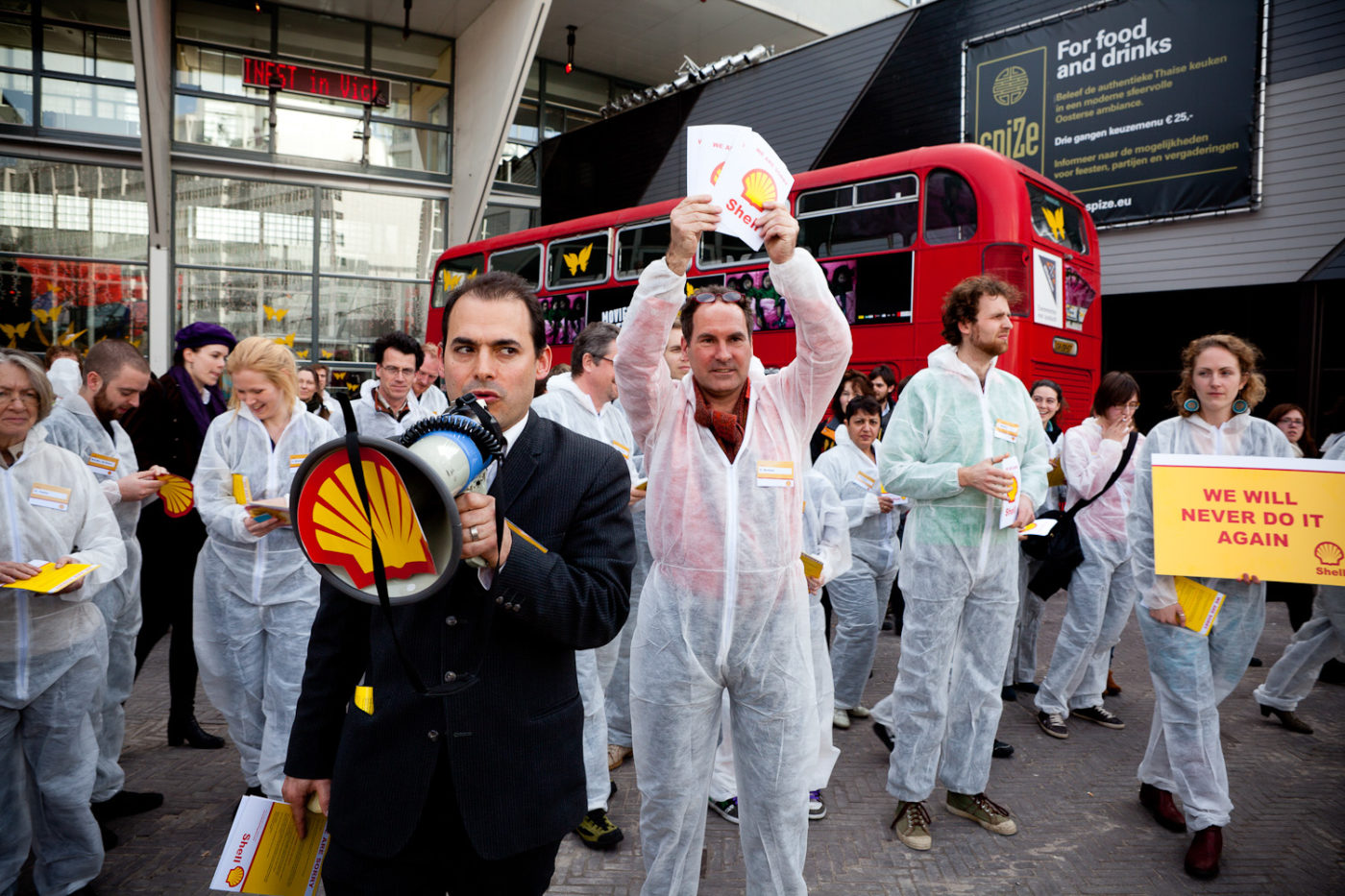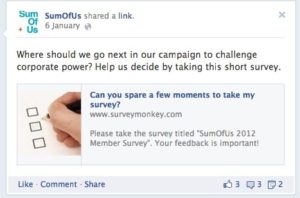Hi! My name is Smitha and I’m from Cambridge, Massachusetts where I will be a rising senior at Harvard College. I’m excited that my interests, which range from social entrepreneurship to environmental justice to science research, will converge this summer at the Mobilisation Lab. For my first post, I would like to highlight a campaign which has sparked many of our interests – #shellfail.
Last week, a team of Greenpeace and Yes Lab activists and hired actors went undercover to stage a reception for Shell’s upcoming offshore oil drilling initiative in the Arctic. The result? Shell’s PR nightmare.
After interviewing James Turner, one of the brains behind this social media action, we at the MobLab are coming closer to understanding the role of this stunt in the larger context of successful mobilisation. So here are our 3 main takeaways…
- Humor. Don’t underestimate it. Turner says, “humor, if done correctly, can be a very powerful tool.” It gives the campaigner more freedom since a large corporation, such as Shell, doesn’t have the liberty to retaliate using equally humorous references. Their multimillion dollar legal team is left scratching its head, as any heavy handed reaction is only going to lead to more negative exposure.
- Quick, adaptive follow-up. Every action has an equal and unexpected reaction – so be prepared. #shellfail did just that. They sketched out a 3-prong campaign: (1) Action, (2) Press Release, (3) Website. “The action was only a third of the team’s output…and only a few thousand dollars to execute.” Definitely a low-risk, high-reward situation. One of the most innovative features of the #shellfail campaign is its website – arcticready.com, especially the social ad gallery and ‘Angry Bergs’ kids game. This website facilitates engagement through features such as user-made advertisements. “We’re not asking people for their information [like a petition], we’re asking for their creativity.”
- Power of awareness. This last point relates to a larger philosophical question – how do we measure a campaign’s true success? We often weight tangible action (i.e. the number of people signing a petition or showing up to a protest) more than awareness building. Have we accepted that a successful, true mobilisation is when we can translate awareness into action? Turner believes there is a unique “beauty to awareness” and that we should evaluate “to what extent we are organizers vs. advertisers.” A professional advertising firm would see 700,000+ Youtube views and a viral website as a huge success. They recognize that exposure and controversy is often just as important as ‘engagement’, whatever that means. No one necessarily has the answer to this – but we should ask ourselves – what is the role of awareness in the scheme of mobilisation. Should we value the climate change of human consciousness as a victory or merely a milestone?
All food for thought…so comment/tweet us back with your opinions!
For more information on the #shellfail campaign please email James at james.turner@greenpeace.org.
Categories:
tech, tools and tactics


